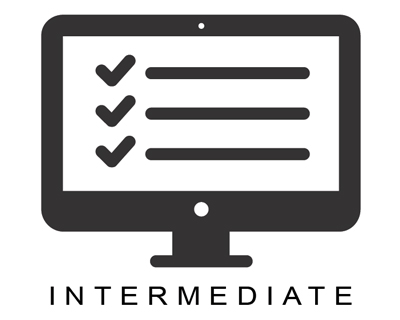For decades, compost (and other organic recycled product) application rates have been governed by the amount of plant available nitrogen they provide. However, over the last 5-10 years, concerns about phosphorous application, and its effect on the environment, have led to State regulation limiting its application. Currently, 16 states have phosphorus regulation in place, and… Continue reading POL.215-Compost and Phosphorous: Managing Regulations and Risks-AC22.USCC
Category: Intermediate
POL.214-SB 1383 in California: Organics Collection for Everyone, Everywhere, All of the Time-AC22.USCC
SB 1383 is an ambitious attempt in California to simultaneously address both climate change and resource management. Focussing on methane reduction, SB 1383 is anticipated to create hundreds of new residential, commercial and institutional food scrap collection programs, adding to CA’s already robust composting infrastructure. This presentation will provide a quick overview of the legislation… Continue reading POL.214-SB 1383 in California: Organics Collection for Everyone, Everywhere, All of the Time-AC22.USCC
POL.213-Expanding Organics Management in Washington State: Challenges and Opportunities-AC22.USCC
Like in other states, almost 30% (by weight) of the disposed load in Washington is organic material. As Washington takes major steps to enact climate change policy, diversion of this landfill load to avoid generation of a super emitter gas – methane – is now under serious consideration. The imperative to address food waste has… Continue reading POL.213-Expanding Organics Management in Washington State: Challenges and Opportunities-AC22.USCC
POL.212-Vermont’s Universal Recycling Law drives infrastructure development throughout the state.-AC21.USCC
successes, challenges and opportunities for organics management Speakers: Natasha Duarte Duration: 21 minutes Credits: 0.5 Member Price: $30.00 Non-Member Price: $52.50 Purchase Course Now
POL.211-NJ’s Organics waste infrastructure opportunities and challenges-AC21.USCC
How to move your state on the new path of supporting Organics and food diversion Programs. Speakers: Jairo Gonzalez Duration: 25 minutes Credits: 0.5 Member Price: $30.00 Non-Member Price: $52.50 Purchase Course Now
POL.210-Effects of Phosphorus Regulation on Compost Sales-AC20.USCC
This video discusses phosphorous (P) applications, and how there are better ways to regulate its use depending on the soil type and phosphorous type. Speakers: Ron Alexander Duration: 30 minutes Credits: 0.5 Member Price: $30.00 Non-Member Price: $52.50 Purchase Course Now
MAR.220-Estimating the Market Potential of Food Waste Generation Using GIS-AC22.USCC
Solid waste facilities are coming under pressure to adapt to organics legislation seeking to divert organics (predominantly food waste) from the municipal solid waste stream. Food waste recycling can create economic benefits in addition to environmental ones. Most organics legislation puts the burden for source separation and organics diversion on the food waste generator. Tetra… Continue reading MAR.220-Estimating the Market Potential of Food Waste Generation Using GIS-AC22.USCC
MAR.218-Operations can wait; your story can’t. How to stand out in a saturated market.-AC22.USCC
We open under a microscope. It’s dead quiet. Tiny little particles bounce around at random like the white ball in the classic Atari game, Pong. As we zoom in to take a closer look, the movements begin to slow; we begin to hear the first notes of Debussy’s Clair de Lune. Through a series of macro… Continue reading MAR.218-Operations can wait; your story can’t. How to stand out in a saturated market.-AC22.USCC
MAR.217-Physical Marketing vs. Digital Marketing: How Using Physical Marketing Materials Will Amplify Your Digital Campaigns-AC22.USCC
Although it may be hard to believe, not everyone stares at only their phone or computer screens. As such, not all marketing needs to be digital. Traditional marketing, also known as physical marketing, has taken a backseat to today’s focus on digital marketing programs. Currently, many companies believe physical marketing materials are a thing of… Continue reading MAR.217-Physical Marketing vs. Digital Marketing: How Using Physical Marketing Materials Will Amplify Your Digital Campaigns-AC22.USCC
MAR.216-Creating Customer Engagement via Partner & Event Collaboration-AC22.USCC
Mark Twain said “Synergy – the bonus that is achieved when things work together harmoniously.” Learn how to create synergy, excitement and engagement with other stakeholders to promote compost use. Building on events such as International Compost Awareness Week and World Landscape Architect Month provide great opportunities to target and reach influencers within and outside… Continue reading MAR.216-Creating Customer Engagement via Partner & Event Collaboration-AC22.USCC
